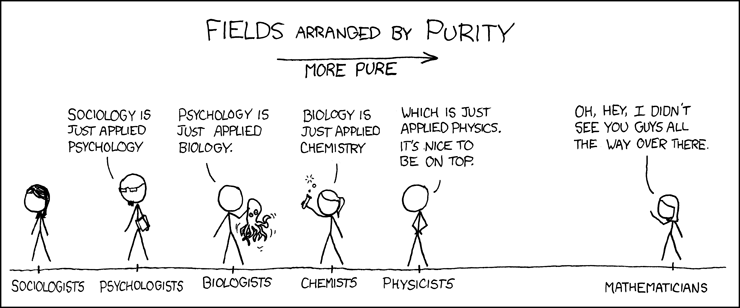I'm curious about what you think about the claim that psychology as field, but particularly therapy is more an art than a science. I'm finishing up a terminal MA, but starting my PhD at a balanced program in the fall in part because the science and research aspects of psychology are what I find appealing and in my mind what really separates a trained psychology professional (MA or PhD/PsyD) from a life coach or the advice your grandma would give.
In my MA it's really been pushed to trust our guts, look at therapy as an art not a science, follow your heart etc. I can see ways this is valid. I know there is at least research that supports gut instincts to an extent, but it feels like the science aspect is neglected, at least in my current program and at the sites I've been at for internship/practicum. It's frustrating to me because many of my classmates do things like get therapy protocols off of Pinterest and can't interpret the methods sections of journal articles. One intern who got just got hired at a private practice will play chess with clients all session if he senses the client doesn't feel like working and then bills for it. Another classmate has this in her office http://www.smarttherapist.com/manifesto/
Can I expect to encounter this more an art, less a science type attitude at the PhD level? For what's it worth I did not see this in interviews which were very research focused and I really enjoyed talking to the other applicants about their lab work.
In my MA it's really been pushed to trust our guts, look at therapy as an art not a science, follow your heart etc. I can see ways this is valid. I know there is at least research that supports gut instincts to an extent, but it feels like the science aspect is neglected, at least in my current program and at the sites I've been at for internship/practicum. It's frustrating to me because many of my classmates do things like get therapy protocols off of Pinterest and can't interpret the methods sections of journal articles. One intern who got just got hired at a private practice will play chess with clients all session if he senses the client doesn't feel like working and then bills for it. Another classmate has this in her office http://www.smarttherapist.com/manifesto/
Can I expect to encounter this more an art, less a science type attitude at the PhD level? For what's it worth I did not see this in interviews which were very research focused and I really enjoyed talking to the other applicants about their lab work.


